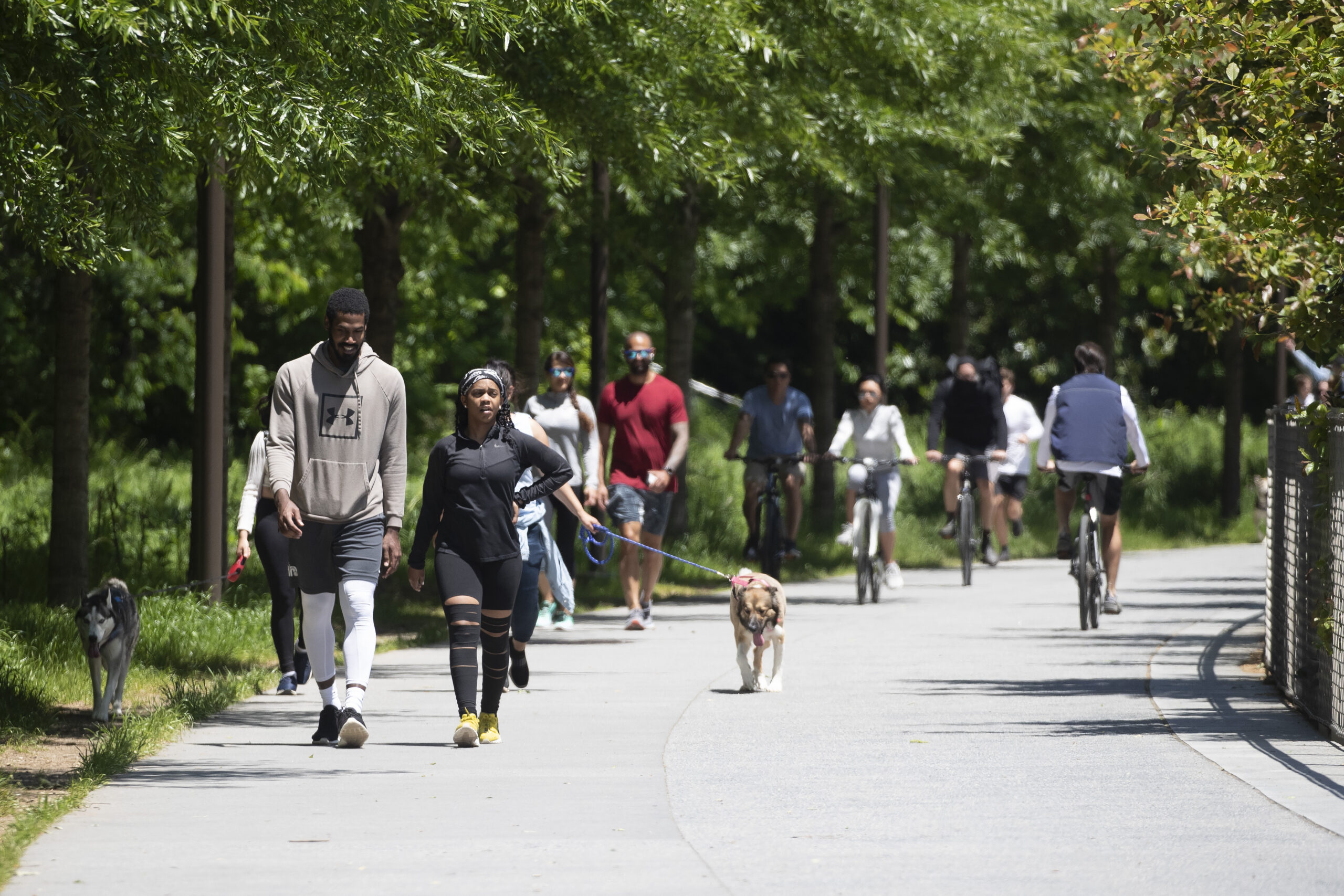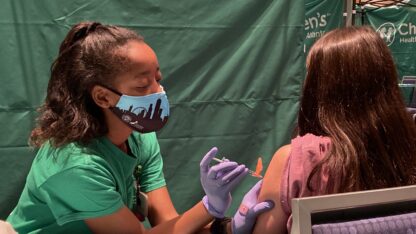You Asked: How Do I Stay Safe From COVID As States Reopen?

People enjoy the warm weather on the Beltline in Atlanta’s Inman Park neighborhood. Georgia shelter in place order expired at the beginning of the month.
John Bazemore / Associated Press
We’re answering questions about the coronavirus and COVID-19, and lately there have been a lot about states reopening. As that happens, how can you stay safe? And do the rules about masks, hand-washing and social distancing still apply?
These questions came from WABE and Indiana Public Broadcasting listeners. A note of caution: As the COVID-19 case count increases, information about the disease is changing quickly. We recommend checking the Centers for Disease Control and Prevention for the latest info on staying safe.
Am I required to wear a mask? Do I need to wear a mask while exercising?
Masks can help prevent the spread of COVID-19 to others. A mask should cover both your mouth and nose—remember not to touch your mask or face when in public.
The Centers for Disease Control and Prevention recommends wearing masks or cloth face coverings in public places where it’s challenging to stay six feet apart from other people.
While Georgia doesn’t require masks, some businesses here are asking people to put on masks or other face coverings before entering.
NPR tackles questions related to running: how far apart to stay from others, and whether or not to wear a mask. Short answer: “Just as you’d wear a mask to the grocery store or pharmacy, you should wear one if your run is likely to bring you into close contact with other people.”
I have a co-worker who had a case of flu in January, with a fever and a bad cough that lingered. She believes she had COVID-19 at that time and is now immune. Is that possible?
“There is currently no evidence that people who have recovered from COVID-19 and have antibodies are protected from a second infection,” according to the World Health Organization.
Remember, this is a new coronavirus—very little is known about it, especially about immunity. And while there a few antibody tests on the market, health experts are worried about their consistency and accuracy.
How quickly, after picking up the virus, can you test positive? For instance, if I am virus free, and I stop by the gas station, and unknowingly pick up Covid-19, rub my eyes, etc., on my way to go get tested for the virus, will that test show a positive result? How long do you have to have the virus before it shows up on a test?
Thomas Duszynski, an epidemiologist at Indiana University, says the virus needs time to replicate in the body before it shows up on a test.
“So, if someone was on their way to get tested and is virus free and were to get infected at the gas station, they would likely test negative at the time of testing,” he says. “Now everyone is different, and the incubation period is long, 2-14 days. So, you need to have enough virus in your system for the test to detect and there are so many different tests on the market, that threshold of detection can vary from test to test.”
He also notes that people can can have asymptomatic infections. Someone can be infected and able to spread the disease, but have no clinical signs or symptoms of illness.
What does it do to a baby’s cognitive and psychological development to see only people in masks, aside from their parents, when they are out at the grocery store?
Psychologists don’t have concrete data on this yet, but Butler University Psychology professor Robert Padgett says facial cues of emotion are important in a child’s development. That’s harder to learn when the mouth is covered, but eyes and eyebrow movements are expressive and are still visible when someone is wearing a mask. Psychologists will continue to research this topic as the pandemic continues.
Engagement at WABE is powered, in part, by our collaboration with America Amplified, a Corporation for Public Broadcasting-funded initiative to use community engagement in our reporting.








